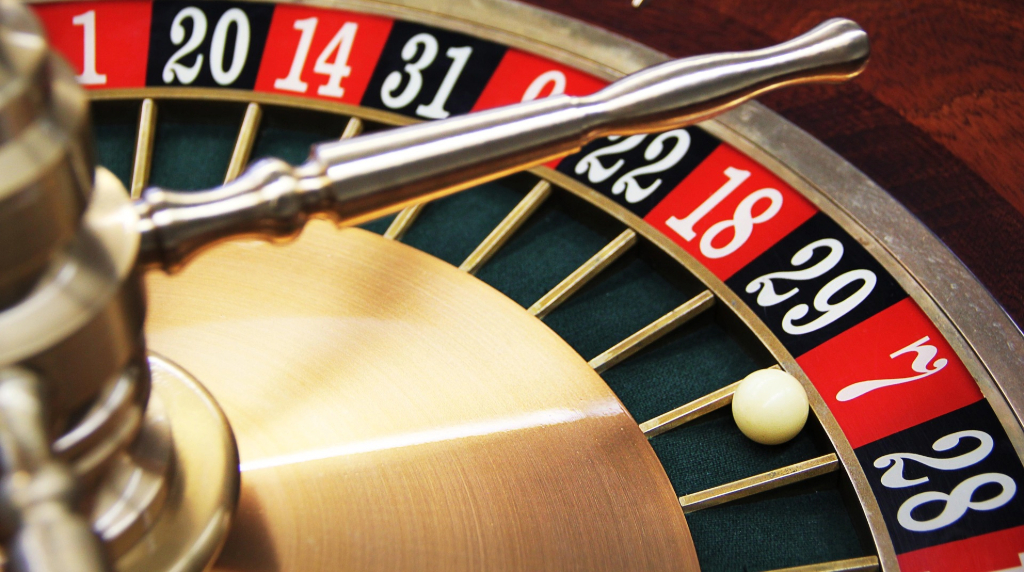The US Live Dealer Boom: From Roulette Tables to Crazy Time
It’s no secret that live dealer games are booming across North America. More and more players find that they are drawn to the human element of live casinos, where they can interact with other people and see live dealers shuffling the cards or spinning the ball.

Live dealer games continue to increase in popularity. © Greg Montani, Pixabay
Why Live Dealer Games Are Booming in the US
One of the byproducts of a thirty-plus-year career in table games is that you get to see the slow evolution of the industry. Unlike slots, tables change at a glacial pace, but they do change.
From side bets and progressives to smart shoes and automatic shufflers, the pits have slowly grown more technologically driven, but other than the addition of some poker derivatives like Mississippi Stud and Ultimate Texas Hold ’em, the games and how they are played haven’t changed in centuries.
Live Dealer Games Set the Pace
The popularity of live casinos has boomed in recent years, especially in the US. Players seek more immersive and trustworthy gaming experiences not only at land-based venues but at the best live casino sites as well.
Live dealer games are typically streamed from professional studios. However, we’ve recently seen some broadcasts made directly from real casino floors. These games feature a human dealer running traditional table games, such as blackjack or roulette, in real-time.
Building on the evolution of traditional live dealer offerings, we have recently seen more innovative titles, such as Crazy Time and Monopoly Live, gain traction. These are live dealer games in presentation, but they differ significantly from games like blackjack in both style and gameplay format.
Unlike fully electronic games, live dealer titles appear to avoid random number generators. Players can watch the dealer shuffle cards or spin a physical wheel, which leaves players with heightened trust.
However, it’s important to note that in many cases, trust is based more on presentation than reality. Game show-style titles and enhanced roulette variants like Lightning Roulette or Red Door Roulette still rely heavily on RNG elements hidden in the backend.
The dealer may be visible, but outcomes like multipliers and bonus features are triggered by software, not just physical events, such as the ball landing.
Despite this, players continue to feel more comfortable playing with a live human dealer, as study after study and the games’ increasing popularity both suggest.
Other reasons for players’ increasing preference can be attributed to significant strides in streaming quality and the adaptation of these games to mobile formats, strengthening their appeal.
What’s Driving Play?
However, perhaps the biggest reason for their continued success lies in their aggressive innovation of what makes a table game, a table game.
The hottest games in the live dealer genre in CasinoRank’s 2024 top ten show that only Live Roulette and Infinite Blackjack by Evolution are examples of traditional games. And they are ranked towards the bottom of the list. This trend signals a growing interest in new and fresh experiences.
The list did include Mega Fire Blaze Roulette by Playtech, as well as both Lightning Roulette and XXXtreme Lightning Roulette by Evolution.
This heralds enhanced formats as the new preference for live dealer table games, as they offer significantly improved visual and sound effects and RNG-driven multipliers, which can result in wins of up to 10,000x.
Higher-volatility games are becoming the norm across live dealer studio offerings, as evident in the top three games from last year: Crazy Time Live, Funky Time, and Sweet Bonanza Candyland. All these games are also what is referred to as a game show format. Each round feels like a mini-TV show, designed to build suspense and foster player interaction.
Trust or Connection?
While the spectacle and volatility certainly drive player interest, it should be clear that the outcomes of these games are not decided by human interaction, but by the same RNG chips that many players have said drove them away from the electronic games in the first place.
In any case, all of these games have a lot of player engagement with each other and the larger-than-life hosts who keep the game fun, indicating a pull for a more social element rather than just a mistrust of technology.
The future of live dealer games may look more like Who Wants To Be A Millionaire rather than Monte Carlo, with lots of drama, dazzle, and the dream of a massive payout.
Conclusion
One thing’s clear: on both live studio and casino floors, players want higher volatility, bigger payouts, social interaction, and fun gameplay.
This could forever change the centuries-old games of roulette and craps. There may be more changes in tabletop games on your phone and in the pit in the next five years than in the last 150 years.
Innovation won’t stop at the edge of the studio; these new games will lead younger players to demand changes on the real-world floor. Perhaps it won’t be long before we see a Crazy Time Studio live from the Bellagio, or a Red Door Roulette game in the high-limit room.
 Reel Love: 5 Slot Games to Match Every Valentine’s Mood
Reel Love: 5 Slot Games to Match Every Valentine’s Mood
 Best Christmas Slots for 2025
Best Christmas Slots for 2025
 7 Politically Incorrect Slots for the Connoisseur Who’s Seen It All
7 Politically Incorrect Slots for the Connoisseur Who’s Seen It All
 Casino Payment Delay Red Flags: When Waiting Is a Concern
Casino Payment Delay Red Flags: When Waiting Is a Concern